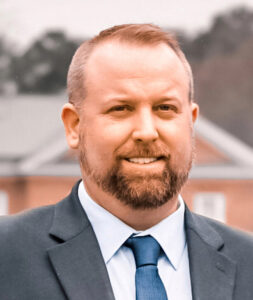Writer: Max Crampton-Thomas
 2 min read April 2021 — North Carolina Wesleyan College is a private Methodist liberal arts college in Rocky Mount. The College’s President Evan Duff spoke with Invest: and discussed how donations are impacting the college. He also touched on assistance for transfer students and how the college supports financially distressed students during this time of need.
2 min read April 2021 — North Carolina Wesleyan College is a private Methodist liberal arts college in Rocky Mount. The College’s President Evan Duff spoke with Invest: and discussed how donations are impacting the college. He also touched on assistance for transfer students and how the college supports financially distressed students during this time of need.
What were some of the main highlights and milestones for the college in the past 12 months?
We’ve seen an increase in our donor base as some major donors stepped up to provide campus-changing facilities that will differentiate us from other colleges. One is that we will now have a 48,000-square-foot sports and education facility on campus that combines the tennis and squash courts with laboratory space for our Exercise Science and Health Promotion programs. There is room for expansion in the future and we plan to engage our community in the activities and research our faculty conduct regarding public health. The other is our Shaw Living and Learning Complex, which will hold living and classroom space for our pre-vet and science majors. We also saw a time of growth among our faculty, staff and students. Many of us struggled with social issues this year and we had the opportunity to provide some learning opportunities about diversity and inclusion. As a higher educational institution, we want to stay focused on our mission. We want students to be positive change agents for the world.
We saw a minor impact on enrollment in the last year, which was more within our adult studies. But within our traditional student headcount we’ve seen improvements in our persistence rate, retention rate and graduation rate. Even in times of distress, we’re seeing the benefits to taking care of our students. We’ve had students who could not return so we connected them remotely and our faculty have worked extremely hard to ensure they stay up to date.
In what ways is the school assisting transfer students?
Since 2011, we’ve had a big focus on ensuring that students who have previous college coursework from up to five different schools can have a seamless way to transfer their credits. There is no time limit on college credits so if a student took a course 20 years ago, that still counts, and we include that in their graduation plan. We also recognize transfer courses that some other institutions may not. We used to only accept 60 hours of transfer from a community college, but we now allow them to transfer an additional 15 hours of general education credit for a total of 75 hours of transfer credit. Through research and best practices, the only way to meet state and federal attainment goals for undergraduates is to simplify the process and recognize all academic accomplishments. We consider military and law enforcement training and other viable learning experiences on a case-by-case basis.
How are you supporting students under pressure financially?
We have a very competitive pricing structure compared with our peers. In the last year, the CARES Act funding has allowed us to provide further opportunities to students. We also provide a reduced tuition plan for military and first responders. We understand that those industries are underpaid compared to the services they provide and we want to support them in their higher education journey. We’ve also partnered with a company that has a student loan repayment assistance program. At no cost to the student, if a graduating student is making less than $50,000 per year, our partner will help pay some or all of that student’s loans. The condition is that they have to graduate from the college. They have to repay the loans and the company reimburses them and there are some eligibility requirements.
What are some of your most popular courses and how do they reflect the needs of the economy?
Our top programs are business, criminal justice, psychology and exercise science. Exercise science directly relates to key positions in the healthcare community. Business is certainly broader and can lead to any position from administrator to CEO. We also offer a healthy number of liberal arts programs where faculty help students understand how the learning outcomes in these programs lead to a variety of careers. We help our students translate classroom learning to practical, lifelong skills.
What are some of the changes you expect and what is your near-term outlook for the college?
With the new presidential administration, I anticipate a greater amount of funding for colleges in general but more so for minority serving colleges. There may be some changes in the community college system – perhaps not free tuition but perhaps some programs that leverage costs. It’s too early to anticipate any regulation that would hinder what we do, and I don’t think that always comes from a federal level.
There is a lot of information out there about what colleges should be focusing on, from AI to better modes of delivery of education. I do think colleges will need to be more creative, and part of this will be through the creation of partnerships. We have a partnership with a major firm known as the ActOne Group, which is a recruiting firm that will be on our campus working in partnership with our career services offices.
For more information, visit:
